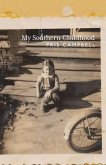Our Imaginary Childhood, Sara Watson's vivid new chapbook, takes on the task of narrating childhood through the offbeat, precocious voices of eleven siblings growing up helter-skelter. The mother and father drink and "spend whole days in bed." "They love us, but they have headaches," the unnamed central narrator says, and later adds, "Every family needs a storyteller, otherwise the family is a secret." The slow reveal of this family' secret pries open the brief, compact form of the chapbook. The ending of OUR IMAGINARY CHILDHOOD is worthy of a novella. This is a very poignant and intelligent debut.-Lynn Emanuel The magic of Sara Watson's Our Imaginary Childhood collects in coffee cans, dirty spoons, crows' nests, and graveyards. This is a family ghost story where the ghosts are alive, playing house or playing dead in a home filled with love and haunted by alcoholism. But in the mailbox or under a rock or beneath a tree there is always a secret password, a key to the kingdom of hazy orange kid dreams. Each of these prose poems is a tiny wonder.-Rochelle Hurt








